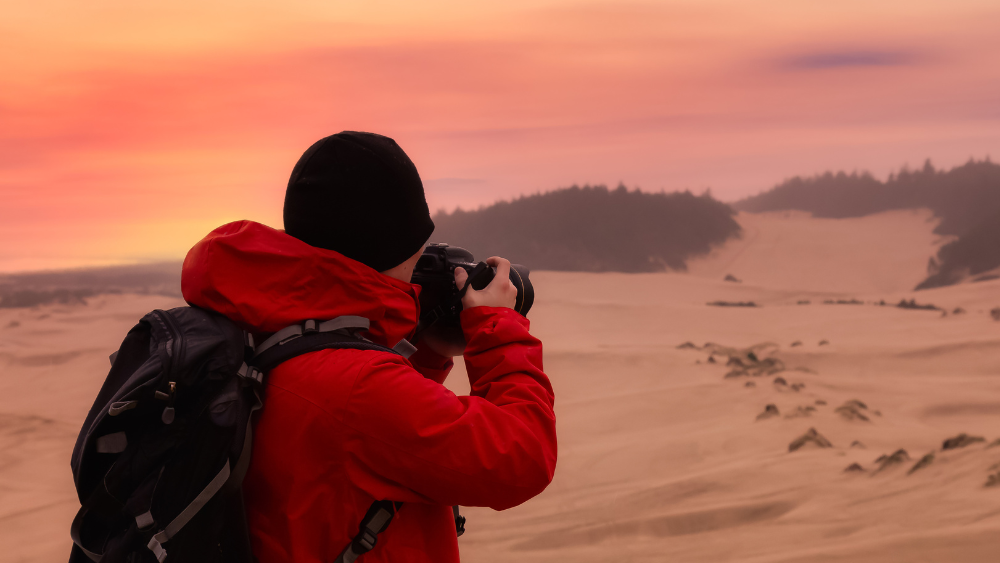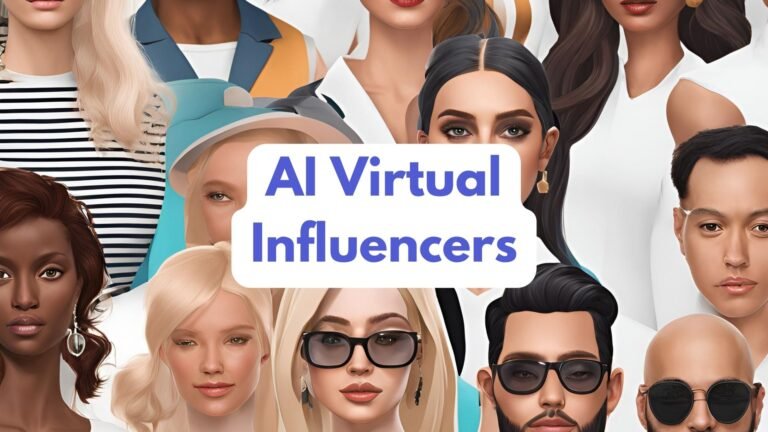Are you a destination marketer looking to stay updated with the social media trends in 2024?
The world of social media is ever-changing, and to succeed in promoting your destination effectively, you need to be up-to-date with the latest trends.
As 2024 unfolds, the digital landscape is rapidly evolving, especially in the realm of social media.
Understanding and leveraging these social media trends for destination marketers is not just an advantage; it’s a necessity.
The latest social media trends for destination marketers promise a transformative impact on how we connect, engage, and influence the modern traveler.
To help you navigate these exciting developments, we’ve compiled a comprehensive guide to:
11 Essential Social Media Trends for Destination Marketers in 2024!
1. AI-Driven Travel Content

Artificial Intelligence (AI) is no longer just a buzzword but a fundamental element in how content is crafted and consumed on social media. In the context of travel and destination marketers, AI is playing a pivotal role.
AI is transforming the user experience on social platforms by creating personalized travel itineraries, generating virtual tours, and offering automated customer service.
How can destination marketers jump on AI trends while staying true to that authenticity we mentioned above?
Allow your brand to engage with AI. Utilize social media trends that enable you to display AI-generated insights about your destination and encourage your followers to share their thoughts on how closely (or not) these results align with the experience.
Myrtle Beach also tapped into AI last year with a cheeky Reddit campaign that showcased an AI-generated brand refresh and website, highlighting how AI can come close to reality but doesn’t always get things right.
2. VR and AR in Travel Experiences

Virtual Reality (VR) and Augmented Reality (AR) are taking the travel experience to new heights.
These technologies are no longer futuristic concepts but are currently being integrated into social media platforms, transforming the way we interact with potential destinations.
VR offers immersive explorations, allowing users to ‘visit’ a place virtually before booking their trip. AR, on the other hand, adds an interactive layer to the real world, enhancing the physical environment with digital elements.
The global AR and VR share in the travel and tourism market was valued at $74.6 million in 2018 and is projected to grow to $304.4 million by the year 2023, at a CAGR of 32.5%.
North America, followed by China and then Japan, held the largest market share in 2018, and this trend is expected to rise between 2023 and 2030.
3. Ephemeral Content Takes Center Stage
Ephemeral content, such as Instagram Stories or Snapchat posts, continues to dominate the social media space. This type of content, which is available only for a short duration, encourages more authentic and immediate engagement.
For destination marketers, ephemeral content is a powerful tool to showcase real-time events, exclusive offers, and behind-the-scenes glimpses of destinations. It creates a sense of urgency and FOMO (fear of missing out), which can be particularly effective in the travel industry.
4. The Boom of Social Commerce in Travel

Social commerce, the process of selling products directly through social media platforms, is revolutionizing the travel industry. It simplifies the buying journey by allowing travelers to book their trips directly from their social media feeds.
For destination marketers, this means integrating booking functionalities into their social media platforms, thereby reducing the steps a traveler needs to take from inspiration to booking.
Travel brands, particularly hoteliers, compete with online travel agencies (OTAs) that transact approximately 50% of U.S. online hotel bookings.
Accommodation bookings also generate the lion’s share of OTA profitability. In the highly fragmented tours and activities space, 52% of bookings are through intermediary channels with only about 25% of bookings currently processed online.
5. Video Content Remains Supreme

Video content continues to be a key driver of engagement on social media. In the context of travel, video content has the power to transport viewers to different places, offering a taste of what they can experience.
Platforms like TikTok and Instagram are enhancing their video features, providing marketers with a variety of creative ways to showcase their destinations.
From short-form videos that capture the essence of a place to live streaming events, video content remains an essential part of any destination marketer’s toolkit.
6. The New Wave of Influencer Marketing

Influencer marketing is evolving, with a notable shift towards micro and nano-influencers. These influencers might have smaller followings, but they often boast higher engagement rates and a more targeted audience.
For destination marketers, this means a move towards more authentic, niche marketing efforts. Collaborating with these influencers can lead to more genuine content and can resonate more strongly with specific demographics or interest groups.
73% of brands actively use influencer campaigns as a powerful arm of their marketing machine, and there’s no doubt that the trend is here to stay.
7. Amplify Your Reach with Current Trending Social Media Content

By now, you’ve likely encountered at least one trending Reel or TikTok template. In 2023, Barbie, Pedro Pascal, Taylor Swift, and Cats ruled social media feeds, and brands that tapped into these trends were reaching audiences in new and creative ways.
88% of B2B marketers said that their top-performing content is that in which they prioritized their audience’s informational needs over their brand’s promotional messages.
8. The Rise of Social Media Travel Communities

Online communities on social media platforms are becoming more prominent. These communities offer spaces for like-minded individuals to connect, share experiences, and offer recommendations.
For destination marketers, engaging with these communities can be a goldmine. It’s an opportunity to build stronger relationships with potential travelers, gather insights, and even co-create content with the community members.
Today, almost 90% of the world’s population is on social media, consuming one or the other type of content.
9. Leveraging Social Listening and Analytics

Social listening and analytics tools are becoming increasingly sophisticated, offering deeper insights into audience behavior and sentiment.
For destination marketers, utilizing these tools is crucial. They can provide valuable data on what potential travelers are looking for, their preferences, and how they perceive various destinations.
The average engagement rate for travel, hospitality, and leisure accounts is 1.73% according to Hootsuite.
10. Strategic Social Media Advertising

While organic content is important, social media advertising remains a crucial component of any comprehensive marketing strategy.
The targeting capabilities of social media ads allow destination marketers to reach specific segments of their audience with precision.
“TikTok is not social media. It’s an entertainment platform,” said Beril Gutierrez, Senior Manager of Social Media at Discover The Palm Beaches.
According to Gutierrez, TikTok users spend an average of 61 minutes per day on the platform, surpassing platforms like Facebook and Instagram by 50%.
Instagram still undeniably influences travel. A study by the World Tourism Organization, as reported by CNBCTV18, reveals that Instagram users are more inclined to travel than non-users.
According to the Crowdriff 2024 Trends report, only 3% of destination marketers consider X to be the most buzzworthy social media channel in 2024, yet very few are giving it priority in their 2024 marketing plans.
Our survey indicated that 66% of destination marketers desire to eliminate this channel from their content mix, and we concur that focusing your efforts elsewhere in 2024 is likely a wise choice.
11. The Power of User-Generated Content (UGC)

User-generated content (UGC) continues to be a powerful marketing tool. For destination marketers, UGC can provide authentic and relatable content that resonates with potential travelers.
Encouraging guests to share their experiences and featuring this content can enhance credibility and foster a community around the destination.
Before making decisions, travelers tend to take a multi-touch approach to ensure their vacation experience is 100% as advertised. 79% of people say user-generated content (UGC) has had a highly effective impact on their decisions.
Embracing the Future of Destination Marketing Social Media Trends
As we look ahead to 2024 and beyond, these social media trends offer exciting opportunities for destination marketers.
Adaptability, creativity, and understanding of social media trends for destination marketers are key to staying ahead in the world of travel marketing.
Embrace these changes, integrate them into your strategy, and watch as your destination thrives in the ever-evolving digital landscape.
Remember, in the fast-paced world of social media, change isn’t just inevitable; it’s the catalyst for innovation and growth for destination marketers.
Stay agile, keep learning, and be ready to harness the power of these social media trends for destination marketers.
FAQs
1. What role do virtual reality and augmented reality play in the social media trends for destination marketers in 2024?
Virtual Reality (VR) and Augmented Reality (AR) allow destination marketers to create content, such as virtual tours and overlays of real-world information. These technologies enhance destination previews, storytelling, engagement on social media, and personalization of travel experiences.
2. What are the primary benefits of staying updated on the latest social media trends for destination marketers?
Staying updated on social media trends helps destination marketers adapt their strategies for greater engagement and reach with travelers.
3. How have social media trends for destination marketers evolved over the past few years?
Social media trends for destination marketers have evolved to prioritize authenticity, visual storytelling, and interactive content.
This blog is written by Omkar Veer from Socinova. The images have copyrights from their respective sources.








